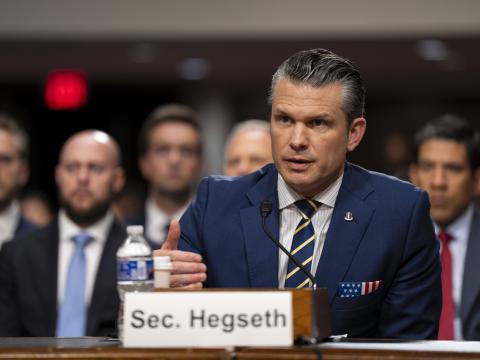Veteran Businesses Gather in Record Numbers
Veteran-owned and service-disabled veteran-owned businesses (SDVOSB) showed up en masse to attend the 5th Annual National Veterans Conference in
Hosted by the U.S. Department of Veterans Affairs, the event attracted more than 3,000 participants from the small business community. The conference began with two overview courses on federal contracting, one for beginners and one for more experienced small businesses. An evening networking reception in the exhibit hall was the culminating activity on the first day.
Joseph G. Jordan, the recently appointed associate administrator of government contracting and business development at the U.S. Small Business Administration (SBA), delivered opening remarks during the Tuesday morning general session. He stressed the commitment that the SBA has to facilitating contracting opportunities for veteran-owned businesses.
Small businesses generally are vocal advocates for their interests, and this audience was no exception. Concerns were articulated over the parity question the Government Accountability Office, SBA and Office of Management and Budget currently are addressing. The question focuses on particular language in the Federal Acquisition Regulation (FAR) that some interpret as giving a preference to small businesses in historically underutilized business zones (HUBZones) when a contracting officer considers setting aside a contract for small businesses.
The conversation surrounding parity and the call to ensure SDVOSBs are treated on par with HUBZone businesses recurred many times throughout the conference. Greg Willis, counsel from the U.S. Senate Committee on Small Business and Entrepreneurship, was scheduled to speak at the conference but had to remain in
Government agencies on the planning committee provided small businesses with the tools they need to establish and grow their organizations. Workshop topics ranged from Contracting 101, subcontracting, mentor-protégé programs, teaming, structuring joint ventures and developing international business opportunities. Beyond the training sessions, speakers consistently stressed the necessity in the federal contracting arena to build and cultivate long-term professional relationships, reinforcing the old adage that people prefer to do business with people they know and trust.
Another recurring message during the conference was the need for small businesses to conduct adequate market research before responding to federal agencies’ requests for information and sources-sought requests. This can be a difficult task for small businesses that do not have the personnel to respond to requests that may never turn into actual contracts—at least not in the short term, many attendees agreed.
The government’s hands are tied, however. Agencies must abide by the FAR requirement that they have at least two small businesses capable of doing the work before they can set the offering aside for small business. Small business owners must be educated about how to respond to sources-sought requests in a more expedient and efficient manner. In the OSDBU town hall session, the topic emerged again, and even agency representatives acknowledged that a poorly written proposal can hurt small businesses in the future. They advised that when an opportunity is identified shortly before a proposal is due, it is better for a business to let it go than to respond to it hastily.
Finally, there was a great showing by Procurement Technical Assistance Center (PTAC) personnel from many regions throughout the
In this regard, the AFCEA International Small Business Committee is hosting a presentation by James Regan, director of the Virginia Procurement Technical Assistance Program, on September 15, 2009, at AFCEA’s headquarters building in
The committee also is planning to offer an informative presentation about how best to respond to requests for proposals and sources-sought requests. Additional information about the event will be available in the near future.




Comments